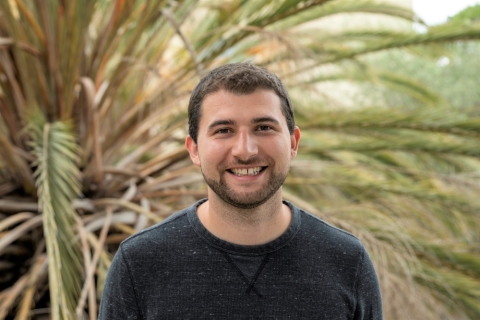
Date:
Location:
Speaker:
Title: Field-Theoretic Simulations for Finite-Temperature Investigations of Bosonic Quantum Fluids and Magnets
Abstract
At ultracold temperatures (< 1 Kelvin), ensembles of atoms can behave collectively due to quantum mechanical effects, where the wave-nature of matter dominates and classical laws break down. For neutral atoms with integer spin (e.g. 23 Na, 87 Rb), a uniquely quantum phase called a Bose-Einstein condensate (BEC) can emerge, often exhibiting unconventional macroscopic properties like superfluidity. In modern experiments, magneto-optical setups are tuned to create isolated and highly controllable environments, facilitating the precise manipulation of quantum states and the realization of entirely new phases of matter. As such, neutral atoms have emerged as a platform both for conducting fundamental science and for engineering quantum sensing and
computation devices.
Notwithstanding this exciting progress, conventional theory and computational methods are limited to either small systems, zero temperature, or mean-field treatments, which may not extrapolate to realistic applications. Here, we introduce a field-theoretic simulation method for studying thermodynamics of BEC mixtures at low temperature. We use the method to investigate one case of substantial interest involving spin-orbit coupled BEC mixtures where laser fields couple an atom’s motion to its (pseudo)spin state. As a result, a poorly understood stripe superfluid “smectic liquid crystal” analog phase appears with a spin density wave in one direction. We conduct the first approximation-free simulations to characterize the striped state and study its melting behavior. Remarkably, our simulations reveal a novel quantum “microemulsion” phase at elevated temperature, where atoms arrange into patterns that resemble bicontinuous oil-water-surfactant microemulsions. We conclude our work on ultracold atoms by building phase diagrams that provide a blueprint for realizing these phases in the laboratory, bridging a gap between theory and modern cold-atom experiments.
After studying the physics of Bose-Einstein condensates with pseudospin degrees of freedom, we turn to study genuine spins in the context of condensed matter physics and magnetic materials, where localized electrons in a crystalline environment interact via magnetic exchange. Such systems may host a panoply of quantum disordered states, where topological order may emerge instead of conventional magnetic order at low temperature. Often, this apparent disorder stems from the combination of quantum fluctuations and frustration, where competing exchange interactions among spins on the lattice cannot be satisfied. For this class of problems, numerical approaches are mostly limited to small system sizes, non-frustrated systems, zero temperature, orsemi-classical treatments. Here, we introduce a numerical simulation technique for studying thermodynamics of frustrated quantum spin systems. By leveraging a Schwinger boson mapping, we adapt our multicomponent BEC simulation techniques to study thermodynamics of quantum spin lattice models, incorporating both thermal and quantum fluctuations. After benchmarking our method against stochastic series expansion quantum Monte Carlo techniques, we demonstrate its applicability by investigating phase transitions in a paradigmatic model for studying frustrated magnetism — the quantum spin-5/2, square-lattice Heisenberg antiferromagnet with competing near and further neighbor interactions. Finally, we discuss extensions of the method beyond the square lattice as well as future efficiency improvements.



